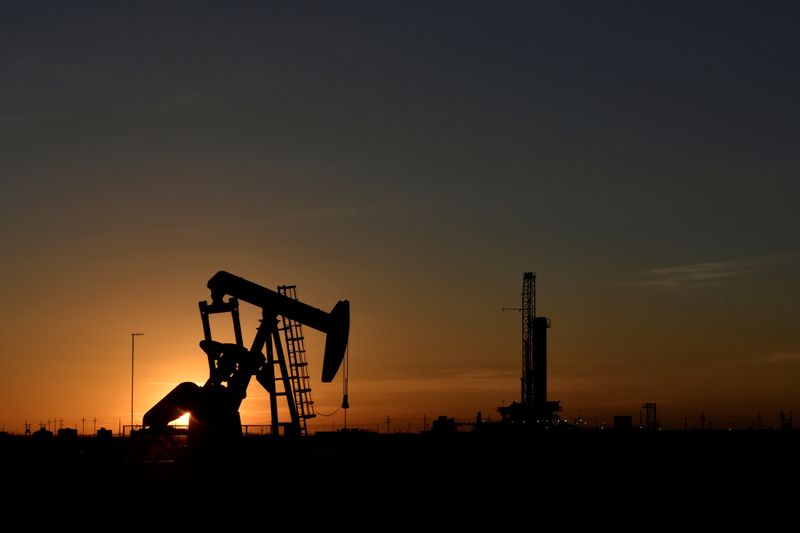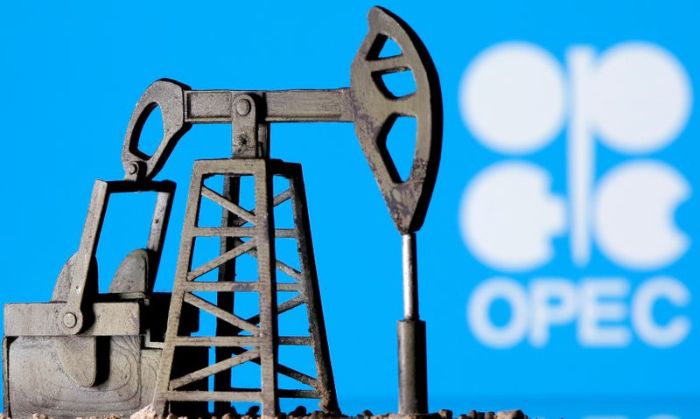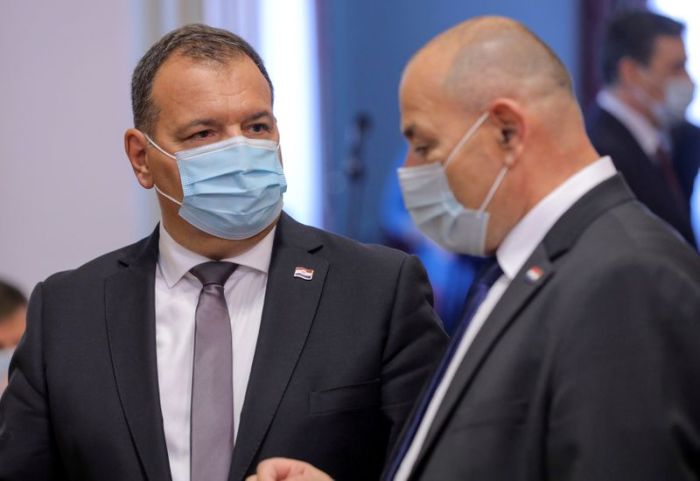NEW YORK (Reuters) – Oil prices eased on Thursday as new restrictions to stem a surge in COVID-19 infections dimmed the outlook for economic growth and fuel demand.
Traders said prices pared earlier losses after the U.S. Energy Information Administration (EIA) reported an increase in U.S. petroleum demand last week that helped reduce crude stockpiles, while distillate inventories dropped by the most since 2003 as Hurricane Delta cut oil production and shut Gulf Coast refineries. [EIA/S]
“The (EIA) report halted the (price) slide, which was threatening to turn into an avalanche earlier this morning,” said Robert Yawger, director of energy futures at Mizuho in New York.
Brent <LCOc1> futures fell 16 cents, or 0.4%, to settle at $43.16 a barrel, while U.S. crude <CLc1> fell 8 cents, or 0.2%, to settle at $40.96. Earlier, both benchmarks were down more than $1 a barrel.
In Europe, some countries were reviving curfews and lockdowns to fight a surge in new coronavirus cases, with Britain imposing tougher COVID-19 restrictions in London on Friday.
“The coronavirus surge is forcing Europe to reinstate pandemic restrictions and that is … crippling short-term crude demand forecasts,” said Edward Moya, senior market analyst at OANDA in New York. “Anemic demand will force (OPEC+) to delay any easing of oil production cuts.”
OPEC and allies in a group called OPEC+ are due to taper production cuts in January by 2 million barrels per day (bpd), from 7.7 million bpd currently.
A Joint Technical Committee, which includes representatives from key OPEC+ producers such as Saudi Arabia and Russia, met to review compliance with its global oil output cuts.
OPEC+ made little progress in September in compensating for over-production in previous months, figures given to Reuters by OPEC sources showed on Thursday.
“It’s apparent … that Saudi Arabia is getting impatient, both with the lack of compliance by others and “low” oil prices,” said Bjornar Tonhaugen, head of oil markets at Rystad Energy.
OPEC’s Secretary General said demand was recovering more slowly than expected and OPEC+ will ensure oil prices do not plunge steeply again when it meets at the end of November.
Top global oil traders Vitol, Trafigura and Gunvor said they saw slow oil demand recovery because of the resurgent pandemic.
In the United States, the number of Americans filing new claims for jobless benefits rose last week to a two-month high.
President Donald Trump said he is willing to raise his offer of $1.8 trillion for a COVID-19 relief deal with Democrats in the U.S. Congress, but the idea was shot down by his fellow Republican, Senate Majority Leader Mitch McConnell.
(Additional reporting by Ahmad Ghaddar in London, Sonali Paul in Melbourne and Koustav Samanta in Singapore; Editing by David Gregorio, Marguerita Choy, Kirsten Donovan and Elaine Hardcastle)















